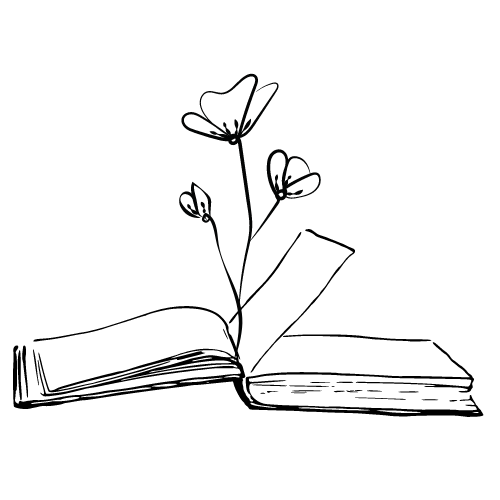How many articles have you read about being more creative? How many podcasts have you heard where the host claims to have uncovered the secrets of creativity? If you had to guess how many “creativity hacks” you’ve seen out there, would the number be in the hundreds or thousands?
The real creativity hack is this: creative people don’t think about creativity. Creative people don’t obsess over their creativity, nor do they try to biohack their brains to produce more ideas. Writing is far more zen than that. Creative people simply create.
This might sound kind of strange coming from someone who has posted creativity guides in the past, but let’s be real with each other for a moment. Even though creativity is largely a state of being and not something you can force yourself into, there are little lifestyle things you can do to improve your odds of being able to write.
The fallacy of “becoming more creative”
And that’s what I want to talk about today, the difference between living your life in a way that invites good writing habits versus attempting to hack and optimize your way into having an idea.
The fallacy of becoming more creative is the idea that you are missing some tool or behavior that, once acquired, will cause your ideas to flow. In reality, the only thing that will make you more creative is writing more, engaging more with others, and making a commitment to your writing practice.
I call it a fallacy because in the current zeitgeist, everyone thinks the answer can be found in a product. Taking a supplement to enhance your X, Y, or Z sounds a whole lot easier than focusing on getting great sleep, eating properly, moving your body daily, and drinking enough water. But nothing will make you more creative overnight. No hack or tip will instantly boost your creativity. And that’s the truth.
Rick Rubin on Creativity
Here’s something I think is very interesting. Recently, Andrew Huberman had Rick Rubin on his podcast. Rick is a world-famous music producer who has produced some of the biggest acts of all time.
In the podcast, when Rick talks about creativity, he says almost nothing at all. It’s remarkable, really, how devoid Rick’s advice is of any kind of tip or trick or hack. And that’s wonderful. The focus of Rick’s discussion is on lifestyle and attitude, which is where creativity is actually bred.
He didn’t recommend coffee, ashwagandha, or warm-up exercises. These things can be helpful, of course! But when creative people talk about creativity, they aren’t thinking about the accessories to their craft. They’re thinking about mindset, attitude, and the worldview from which the ideas spring forth.
Listen to the episode if you’d like. I personally find it fascinating to juxtapose that discussion with Huberman’s follow-up where he provides neuroscientific evidence for practices to produce creative thoughts. And while I find that information valuable, I also have to express to you just how little truly creative people think about these processes.
The secret to creativity
It can be very interesting to understand the mechanisms of thought and trace the inner workings of the brain, but that probably won’t help you in the immediate if you’re trying to write but feeling uncreative.
The truth is this: the secret to being good at anything is consistency. The secret to creativity is to consistently attempt it. Creative people don’t stumble upon creative thoughts. They actively chase them every single day. To be more creative, you simply have to commit to writing more regularly.
Is your friend with multiple books more creative than you, or do they simply sit down to write every single day while you only write once a week? Does the published author have a greater capacity for creativity, or is it simply their job, while you work in an unrelated field? Of course they’re going to have better odds of success than someone who doesn’t show up to their writing practice more regularly.
Creativity: read, write, critique
Consistency in your writing practice is a large part of the puzzle, but it isn’t the single solution to your creativity problems. You should also read a variety of other authors and participate in critique groups.
Truly, the only thing you need to do to be creative is to create, but it doesn’t hurt to read a variety of other authors and participate in critique groups, too. These accessory practices will help expand your mind and make you a better artist. You won’t just be writing. You’ll be writing well.
I like to read periphery materials in my interest categories. For example, I am a student of persuasion and find the mechanisms of persuasive language to be endlessly interesting. I recently picked up a copy of Annemann’s 202 Methods of Forcing – which is a text for mentalists, sleight-of-hand artists, and magicians. Why? Because it was relatively inexpensive and has something very interesting to offer me. How does a mentalist get their audience to pick the correct card every single time? And if they don’t, how can the mentalist make everyone think that they did? These are questions that, once answered, will help me understand something more about the world, broadening my horizons and making me more creative.
Creative people don’t think about creativity
If you take nothing else away from your reading experience here, remember this: creative people don’t think about how to become more creative.
Creative people are driven by a natural desire to experience and participate in the world around them. They see things happen in the world, and they are compelled to respond through art. That is creativity. You can’t enhance it with a pill. Just think about what interests you. Immerse yourself in trying to understand a concept or a situation. Then, respond in your own words.

